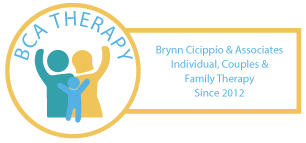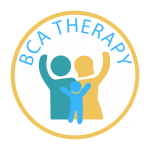
Want to feel confident about yourself?
Self-esteem refers to whether you appreciate and value yourself. Having a low self-esteem can affect every aspect of your life. It can impact your relationship, your family, job and physical and emotional health. But you can boost your self-esteem by visiting a therapist!
Cognitive behavioral therapy is effective in the treatment of low self-esteem, anxiety, and depression. It helps you recognize the cause and get rid of the negative thoughts and doubts, and anxiety in order to diminish hurtful feeling and enable you to take action.
Ingredients of effective cognitive behavioral therapy for low self-esteem include:
- Replacing self-criticism with self-compassion.
- Developing healthier (more flexible) rules and beliefs.
- It helps recognize the cause of negative beliefs, thoughts, and emotions to modify them into positive beliefs.
- Facing your fears and confronting anxiety provoking situations.
Sources:
Dr Matthew Whalley, Dr Hardeep Kaur. “Low Self-Esteem.” Psychology Tools, 18 May 2022, https://www.psychologytools.com/self-help/low-self-esteem/.
Lancer, Darlene. “Self Esteem Therapy: Counseling for Low Self Esteem.” TherapyTribe, https://www.therapytribe.com/therapy/self-esteem-therapy/.
Learn MoreHave Self-Love in your Life
Self-Love comprises four aspects which include self-worth, self-awareness, self-esteem, self-care, and self-esteem. If one is missing, then you do not entirely have self-love. To have it, we should be aligned with these four aspects.
- Self-Worth is the level of importance you place on yourself. It is emotional outlook that determines how and what you feel about yourself in comparison to other people.
- Self-Awareness is being aware of your thoughts, how they affect your emotions, and how emotions cause you to act. Having self-awareness helps you understand yourself and is a big part of your personal development and is a key part to achieving success.
- Self-Esteem is a positive or negative orientation towards oneself. To boost your self-esteem, do things you enjoy, spend time with people who make you happy, and take care of yourself.
- Self-Care is the practice of taking action in protecting your own well-being and happiness, especially during times of stress. There are many ways can practice self-care, but it typically looks different for each individual. Start a healthy self-care routine that works for you!
Guide to be Alcohol Free
Whether its Dry January or a total lifestyle change, everyone has the choice and ability to be alcohol free! If this is your path, here are some tips to keep in mind along the way:
1. No one cares that you aren’t drinking. Sure, they may ask and be curious because they see a change in your routine, but you not drinking has no bearing on them. And if it does, might be time to reconsider the time you invest in that relationship.
2. Mocktails are delicious! Thank God its 2023 and there are many delicious and not super sugary options in the world, along with some great local establishments that have booze free options. Check out Mingle Mocktails (https://www.minglemocktails.com) and Spiritless (https://spiritless.com) for drinks at home and The Volstead (https://volsteadzeroproof.com) is a great hang out in Philly
3. Create a menu of coping skills: Alcohol is the go-to stress reducer for many. It’s also a social lubricant. Being alcohol free means you have to change your automatic responses to certain stimuli. What’s going to be your new way to unwind after a hard day? How are you going to celebrate a siblings milestone birthday? Get out your menu:
1. Hot bath or shower
2. Mocktails
3. Guided Meditation
4. Get Outside/ Be active
5. Praying/ Spiritual connection
6. Get creative/ Find a hobby
4. Move your body! Moving your body is one of the best responses to stress and coping skill available to you at any time. I specifically use the phrase move your body as opposed to exercise because going to the gym feels like a chore. Moving your body can mean yoga in your living room, snow tubing with friends, dancing in your kitchen, or shooting hoops at the park. Moving your body releases endorphins, makes you feel good, and makes intoxicating drinks less attractive.
5. Remember your WHY: Slap a post it on the bathroom mirror or set reminders on your phone. Keep your eye on the prize… reasons might include:
1. Sleep better
2. Less anxiety
3. Support heart health
4. Increase focus
5. Clarity with decision making
6. Increase patience
7. Engage in mindfulness (see benefits here: https://www.apa.org/monitor/2012/07-08/ce-corner)
8. Be a trailblazer among your peers
If your use of alcohol feels out of your control, these tips may not be effective for you. Be sure to consult with a therapist or physician.
Learn More
